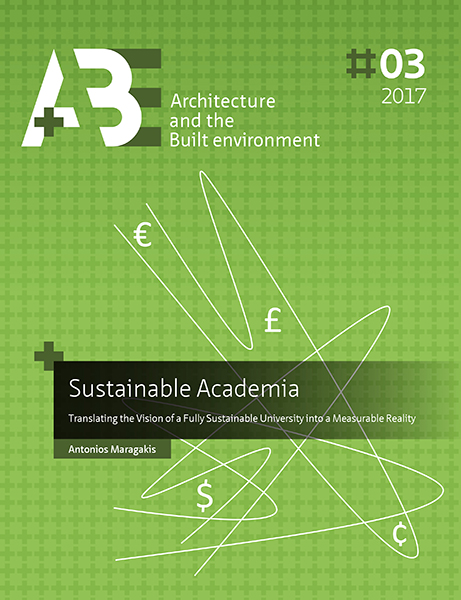Introduction
DOI:
https://doi.org/10.7480/abe.2017.3.3654Abstract
The objective of this thesis is to provide a holistic framework to aid students in reviewing sustainability tools, assessments and marketing. The framework will not replace or compete with any of the existing tools but rather provide a simple, yet robust, starting-point that students can modify based on their own needs and perceptions. The framework will be derived from a qualitative assessment of current methods and then modified based on the quantitative analysis of various surveys.
The aim of this dissertation is to explore the value in creating a universal framework to aid students in reviewing sustainability tools and assessments. In order to accomplish this, one primary boundary conditions must be set to guide the research.
The boundary condition is understanding the limitations of the scope of each assessment. Each tool may vary in purpose, scope, function and state of development (Shriberg, 2002). They also vary in the weighing methods, flexibility and access to information (Gómez et al. 2015). Because of this, an assessment’s scope will be considered sufficient for the assessments purpose. However, the breadth of the scope in relation to a holistic framework will be reviewed in order to aide stakeholders in understanding a more universal view.

